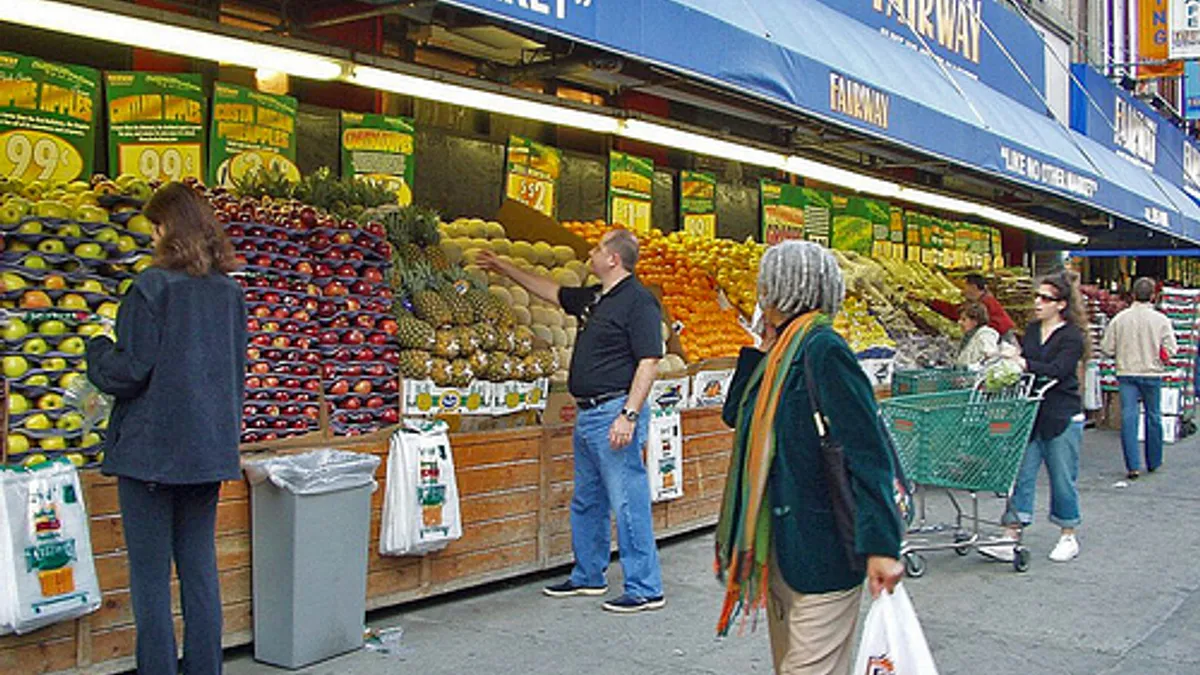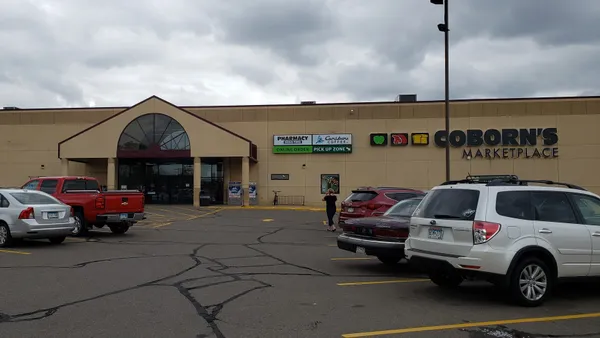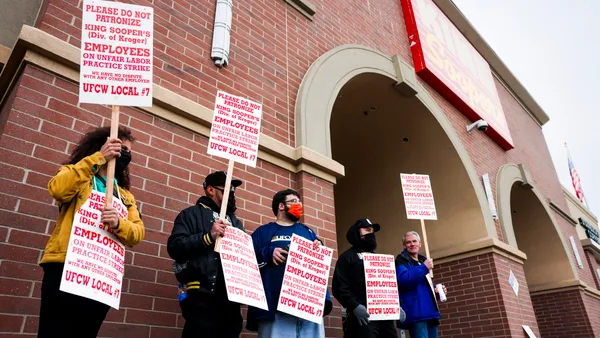UPDATE: January 23, 2020: Fairway Market announced late Wednesday it will file for Chapter 11 bankruptcy protection as it seeks to sell off its 14 locations. The grocer has agreed to sell up to five New York City locations and a distribution center to ShopRite operator Village Super Markets for $70 million in a stalking horse agreement, which sets the minimum amount for others to possibly bid on the properties in a court-supervised auction. Fairway said its lenders have agreed to provide $25 million in financing to keep stores open through the sale process.
The Wall Street Journal, citing an unnamed source, reported that multiple companies have shown interest in Fairway's stores, including Albertsons, Lidl, Amazon and Gristedes Foods Inc.
Dive Brief:
- New York grocer Fairway Market stated Wednesday it "has no intention" of filing Chapter 7 bankruptcy or liquidating all of its stores, according to a press release. The retailer’s statement is in response to a report by the New York Post.
- According to the retailer, the Post's report that the chain would file for bankruptcy and close all of its stores, including its flagship Upper West Side location, were “categorically untrue and disappointing.” Fairway says it is currently engaged in a strategic process and expects to announce a “value-maximizing transaction” soon.
- "All 14 stores remain open for business, offering a complete range of high quality, specialty food products, and we look forward to seeing our customers and employees," Fairway noted in its statement.
Dive Insight:
Fairway's New York City stores are the company's core assets and beloved by customers. Offering a stalking-horse bid to Village Super Markets puts the ShopRite operator in pole position to acquire those locations, but doesn't guarantee it will emerge from the sale process with them.
With stores in four states, Village is looking to further grow its presence in Manhattan, where it recently acquired three Gourmet Garage locations.
Although Fairway's stores in Manhattan and Brooklyn have become local institutions, the company has struggled to compete in the suburbs. Fairway went public in 2013 and rapidly expanded beyond the city where it was founded in 1933, but lost money quarter after quarter and eventually filed for Chapter 11 bankruptcy in 2016, emerging with around a quarter of the $300 million in debt it had faced.
Since then, the chain's debt has grown and pressure from competitors like Whole Foods and Trader Joe's has increased. In September, Bloomberg reported that Fairway was putting itself up for sale again.
Despite hurdles, the independent grocer has continued tp evolve its business under CEO Abel Porter. Last June, the retailer opened a cooking school in the Upper West Side and began using a digital procurement system to source more locally grown foods. It also added more foodservice and grocery delivery options. In 2018, it rolled out a mobile scan-and-go pay app to all of its stores.













